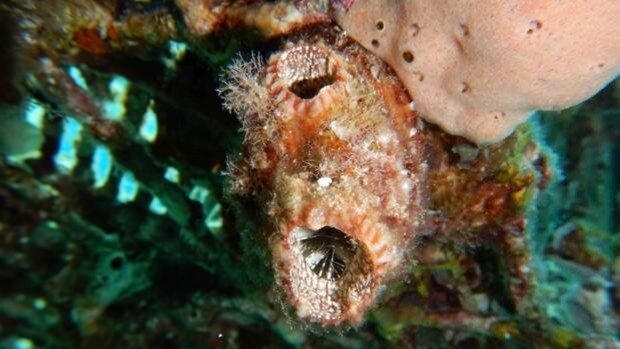 Researchers from Tel Aviv University have discovered in the Gulf of Eviat a species of ascidian, a common marine animal in the area, capable of regenerating all its organs. Like the tails of salamanders, it is capable of growing new parts of its body, although in an even more spectacular way: this ascidian can withstand being cut into three pieces and, even so, recover its original shape again. The details have just been published in the journal 'Frontiers in Cell and Developmental Biology'.
Researchers from Tel Aviv University have discovered in the Gulf of Eviat a species of ascidian, a common marine animal in the area, capable of regenerating all its organs. Like the tails of salamanders, it is capable of growing new parts of its body, although in an even more spectacular way: this ascidian can withstand being cut into three pieces and, even so, recover its original shape again. The details have just been published in the journal 'Frontiers in Cell and Developmental Biology'.
There are hundreds of species of sea squirts and they are found in all the world's oceans and seas. Anyone who has had the opportunity to dive, even without being at great depths, has surely been able to observe sea squirts without knowing it, as they are often camouflaged as lumps on rocks. However, the specific animal on which the research focuses is on the species
Polycarpa mytiligera
, very common in the coral reefs of Eilat.
«It is an amazing discovery, since it is an animal that belongs to the phylum
Chordata
, animals with a dorsal cord, which also includes humans," explains Noa Shenkar, main author of the study. «The ability to regenerate organs is common in the animal kingdom, and even among chordates you can find animals that regenerate organs, such as the gecko, which can grow a new tail. But not entire body systems. "Here we find a chordate that can regenerate all its organs even if it is separated into three parts, and each of them knows exactly how to recover the functioning of all its missing body systems in a short period of time," he says.
The
P. mytiligera
It is a simple organism that consists of two openings, one for entry and one for exit. Inside its body there is a central organ that resembles a pasta strainer. "The sea squirt sucks in water through the entry point of the body, the strainer filters out the food particles left in the body, and the clean water comes out through the exit point," explains Tal Gordon, whose doctoral thesis included this new research. "Among invertebrates, they are considered to be the closest to humans from an evolutionary point of view."
Sea squirts are famous for their regenerative abilities, but until now these abilities have been mainly identified in asexual reproduction. Never before has such a high regenerative capacity been detected in a chordate animal that reproduces only by sexual reproduction (that is, it needs a partner to reproduce). «There are species of ascidians that carry out a simple regeneration in order to reproduce. These are species with a colonial lifestyle, with many identical individuals connected to each other. They replicate to grow. On the other hand, the Eilat sea squirt, Polycarpa mytiligera, is an organism with a solitary lifestyle, without the capacity for asexual reproduction, similar to humans," says Gordon. That is to say, despite her unsociable style, the
P. mytiligera
It needs to find a partner to perpetuate itself.
Previous studies had observed that it was able to regenerate its digestive system and its entry and exit points in a few days. This new study shows that you can do it with the rest of your body, too. “We took some individual sea squirts from Eilat and dissected them into two parts, which were able to replace the removed sections without any problems. In a subsequent experiment, we dissected several dozen sea squirts into three fragments, leaving a part of the body without a nervous center, a heart and part of the digestive system. And contrary to our expectations, not only did each part survive the dissection on its own, all the organs regenerated in each of the three sections. Instead of one sea squirt, there were now three. "This is very astonishing," say the researchers, who emphasize that, to date, such a regenerative capacity had not been discovered among a solitary species that reproduces sexually.
Professor Shenkar concludes: 'Since the dawn of humanity, humans have been fascinated by the ability to regenerate damaged or missing organs. Regeneration is a wonderful ability that we have, to a very limited extent, and we would like to understand how it works to try to apply it within our own bodies. "Anyone who snorkels in the Gulf of Eilat can encounter this intriguing sea squirt, which can help us understand tissue renewal processes that can also be applied to learn more about the human race."
